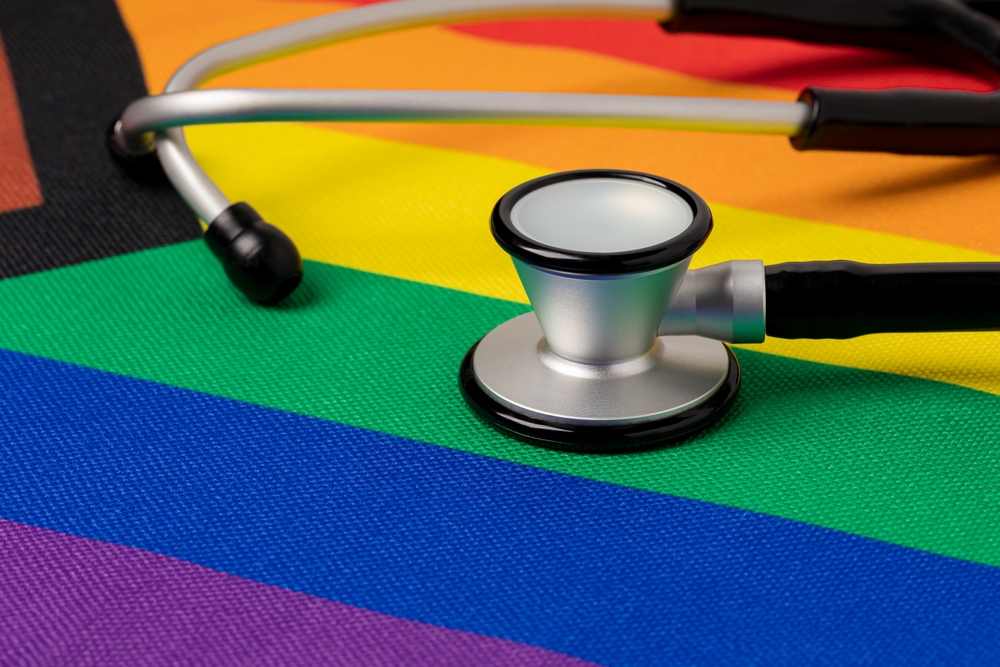Holistic Alternatives to Substance Use Treatment
Holistic drug rehab and substance abuse treatment are becoming increasingly available as more people understand and use alternative, complementary, or holistic methods for all kinds of health and mental health concerns.
A common reason for using alternative, complementary or holistic treatments is to avoid medication risks and side effects. The prevalence of the use of alternative and complementary medicine treatments and therapies increased from about 38% of adults in 2008 to up to 71% of adults in 2022.
The use of complementary and alternative therapies for substance use disorder (SUD) was reported in one study by 65% of respondents.

What is Holistic Drug Rehab?
The term “holistic” refers to the integration of a mind, body, and spirit, or a “whole person” approach, when addressing health and mental health concerns.
Complementary medicine and complementary psychological therapies are treatments that are used alongside, or with, traditional treatments. Alternative treatments or therapies are used as replacements for traditional treatments.
Most holistic addiction rehab treatments are used along with traditional treatments such as cognitive behavioral psychotherapy.
Holistic therapies help you become aware of the connections between your thoughts, feelings, and physical experiences, and help you accept them, rather than resisting them.
Often, the mere act of letting go of resistance brings relief from physical pain and anxiety. A deeper, more complete understanding of yourself leads to greater self-acceptance and self-esteem.
In these ways, holistic treatment is intended to combine physical symptom relief with mental and spiritual advancement.
Differences Between Holistic Addiction Rehab and Traditional Drug Rehab
Many drug rehabs today offer one or more holistic therapies, such as meditation, massage, or yoga, to encourage relaxation and provide a balance to the emotional intensity of counseling and talk therapy.
However, rehabs that market themselves as “holistic rehabs” generally have a more integrated approach, where their overall philosophy and their view of the addiction process and its treatments are based more on a spiritual view than a clinical view.
Holistic treatment providers may often focus less on identifying specific psychological or behavioral diagnoses, and addressing their related symptoms, and more on addressing the client’s overall personal growth, and the integration of their mental, emotional, and spiritual aspects.
The belief is that if these aspects are developed and evolved, that the client’s symptoms will become resolved as a natural result. Even so, holistic addiction treatment providers often utilize cutting edge technology and new scientific treatments, such as biofeedback or other brain-based techniques. It is their fundamental whole-person philosophy that differentiates them.
Types of Treatment Offered in Holistic Rehabs

There are many different treatments that are described under the umbrella of holistic addiction treatment or therapies. Some of these include:
- Massage is used as a non-drug alternative to provide relaxation, increase circulation, and help oxygen and nutrients reach cells to detoxify and heal them.
- Acupuncture, a Chinese medicine technique where thin needles are inserted into various locations on the body, is believed to help flush out toxins, reduce stress, and restore mind-body balance by increasing the natural flow of the body’s energy, or chi.
- Yoga, a mind-body practice, uses breathing, gentle movements, and concentration to provide relaxation and increase the free flow of body energy, or chi. Clients in studies reported improved mood, fewer cravings, and a small level of increased motivation to cease substance use, over a 6-month period.
- Mindfulness Meditation is a popular holistic treatment used to treat substance abuse. It is research-based treatment that involves a focused awareness of one’s senses and feelings in a moment-by-moment experience, while avoiding interpretation or judgment. It allows the mind to settle and relax, and it fosters self-acceptance and self-awareness.
- A 2012 study, reported in the Journal of Alternative and Complementary Medicine, found that a mindfulness-based therapy helped women study participants increase their emotional awareness, regulate their emotional responses, and gain new tools to cope with stress, which positively influenced their substance abuse treatment.
- Biofeedback is a process whereby electrodes are used to monitor a client’s heart rate, breathing, and muscle responses, and this information is fed back to the client, so that they can learn how to regulate these bodily processes to reduce stress. Biofeedback research on clients with substance abuse shows that such training can strengthen brain circuits that control decision making and resistance to drug use, making it a useful treatment for substance abuse.
- Experiential Therapies, like art, music, dance, and role play or psychodrama, where clients express their feelings in ways other than talking, can help overcome shame, guilt, trauma, or stigma.
- Exercise, adventure therapy, or recreational therapy allows clients to take a break from emotionally intense treatment and relieve stress, while strengthening their bodies. Different rehab facilities will offer different options, but common options include basketball, gym exercise, rock climbing, hiking, horseback riding, or swimming.
- Nutritional Therapy helps support physical and mental health. Substance abuse often results in poor nutrition, and many holistic rehabs address this by offering healthy meals and education on the role of proper nutrition and the use of supplements, as needed, to restore health.
- Eye movement desensitization and reprocessing (EMDR) works by changing the way that the brain stores and recalls traumatic memories. By following an object with their eyes as the object moves from side to side, the client’s left and right brain energy is synchronized, and their overstimulated amygdala (fight or flight area) is calmed down.
- Transcranial magnetic stimulation (TMS) is a brain stimulation therapy that uses electromagnetic coils to stimulate certain brain areas and create chemical changes that desensitizes the brain to drug cues. It can also improve treatment-resistant depression.
Benefits of Holistic Drug Rehab
Holistic addiction rehab can help you:
- Identify and resolve the root causes of your addiction, in addition to addressing the symptoms.
- Find purpose and meaning in your life.
- Connect more deeply with your true self through mindful awareness.
- Gain greater self-esteem and self-confidence.
- Incorporate a healthier lifestyle that involves exercise and proper nutrition.
- Find non-medical ways ofcoping that reduce the risk of dependency on other medications.
- Deal effectively with withdrawal symptoms and cravings, using healthy mind/body alternatives.
- Achieve lasting recovery through transformative change.
Holistic Rehab Treatment Options

You can access treatment with holistic therapies at all levels of care:
Residential Treatment
Many holistic-focused treatment centers provide residential care. By separating from the outside world for a while, you can fully immerse yourself into your personal, reflective work and get in touch with your spiritual nature.
In addition, many of the holistic treatments, such as experiential and recreational therapies, are better suited to a residential environment. And it is easier in a 24/7 residential setting to bond with others and develop meaningful friendships that are based on common values.
Outpatient Treatment
Some outpatient rehab facilities offer holistic therapies, such as mindfulness meditation groups, yoga, or massage.
If residential treatment is too costly or inconvenient, you can find day-long (sometimes called partial hospitalization programs-PHPs) or partial-day outpatient programs (intensive outpatient programs-IOPs) that offer more in-depth programming than regular outpatient treatment.
Day programs often run for 5-6 hours per day, five days a week; partial day programs may run 2-3 hours per day for 2-4 days a week. Regular outpatient treatment sometimes offers specialized group sessions that last several hours each, and may incorporate holistic treatments such as meditation.
Holistic Detox
Holistic detox treatment usually involves non-medical interventions, such as acupuncture, massage, and nutritional therapy, that might include herbal supplements or remedies. Non-medical detox requires careful monitoring, so it is most often offered at residential rehab centers.
Things to Consider about the Use of Holistic Addiction Treatment
- Alternative and complementary therapies offer a choice for people who prefer a non-medical approach, or who may have tried conventional therapies and found them to be less effective than hoped for.
- Holistic therapies are most often offered in conjunction with conventional treatments, such as cognitive behavioral therapy (CBT) and family therapy. This way, you get can a well-rounded experience.
- Not all alternative therapies are supported by research. Some may have limited research behind them. Do your homework when choosing a rehab center that uses yet-to-be-proven methods. Be sure that practitioners have certification in the treatments they provide.
- Some holistic therapies and treatments may not be covered by insurance.
Financial Considerations
Paying for addiction treatment is always a consideration when choosing a facility or program, whether the program is holistic or traditional. Here are some options:
Private Health Insurance
Most major private insurances cover drug rehab. Since most rehab facilities offer traditional as well as holistic treatments, private insurance may often be used. But deductibles and copays may apply, so you should check with your provider to learn about these.
Also ask about out-of-network charges, and if certain therapies or treatments are excluded from coverage.
Medicare and Medicare Advantage Health Plans
If you haveMedicare or a Medicare Advantage plan, your insurance should apply to most addiction rehab facilities. But only certain holistic treatments are covered by Medicare, such as massage and acupuncture. Medicare Advantage plans often cover more holistic options. Check your plan’s coverage before making a rehab choice.
State Funded Financial Assistance
If you are uninsured or underinsured, state funded drug rehab programs provide free or low-cost drug rehab. Some state programs receive grants from SAMHSA, and these may be more likely to offer holistic therapies. You can find a listing of state drug rehab agencies here.
Assistance for Military Veterans
If you are a military veteran, the VA offers substance abuse programs in many VA locations. Some VA substance abuse programs may include certain holistic services, such as EMDR and meditation. You’ll find a directory listing of VA substance abuse programs here.
Funding from the Rehab Center Itself
Many drug rehabs, especially those that only accept self-payment, have their own internal financial assistance programs. Check with the facility you are considering and ask about the possibility of financial assistance.
Finding the Right Rehab Program

When choosing a holistic drug rehab facility, it is important to do your research. Consider the location of the rehab, the costof the program, the treatment approaches, both holistic and traditional, and whether these approaches suit you.
Consider if the facility has accreditation from JACO–the Joint Commission on Accreditation of Healthcare Organizations, or CARF–Commission on Accreditation of Healthcare Organizations. Make sure that staff are qualified and certified in the treatments they provide.
Resources for Finding Holistic Rehab Treatment
To find holistic rehabs and mental health support, you can call this line to speak with someone who can assist you in getting the help you need.
Alternatively, our directory includes a wealth of treatment centers. Don’t wait, get help today.
- What is Holistic Drug Rehab?
- Differences Between Holistic Addiction Rehab and Traditional Drug Rehab
- Types of Treatment Offered in Holistic Rehabs
- Benefits of Holistic Drug Rehab
- Holistic Rehab Treatment Options
- Financial Considerations
- Finding the Right Rehab Program
- Resources for Finding Holistic Rehab Treatment
More Specialty Rehab Programs

Executive Drug Rehab
Professional and Executive Drug Rehab Professionals, especially those in high level positions, such as business executives, and medical professionals, including

Holistic Drug Rehab
Holistic Alternatives to Substance Use Treatment Holistic drug rehab and substance abuse treatment are becoming increasingly available as more people

LGBTQ Drug Rehab Programs
LGBTQ Oriented Substance Use Treatment Lesbian, gay, bi-sexual, transgender, and queer (LGBTQ)-identifying adults are more likely than straight adults to